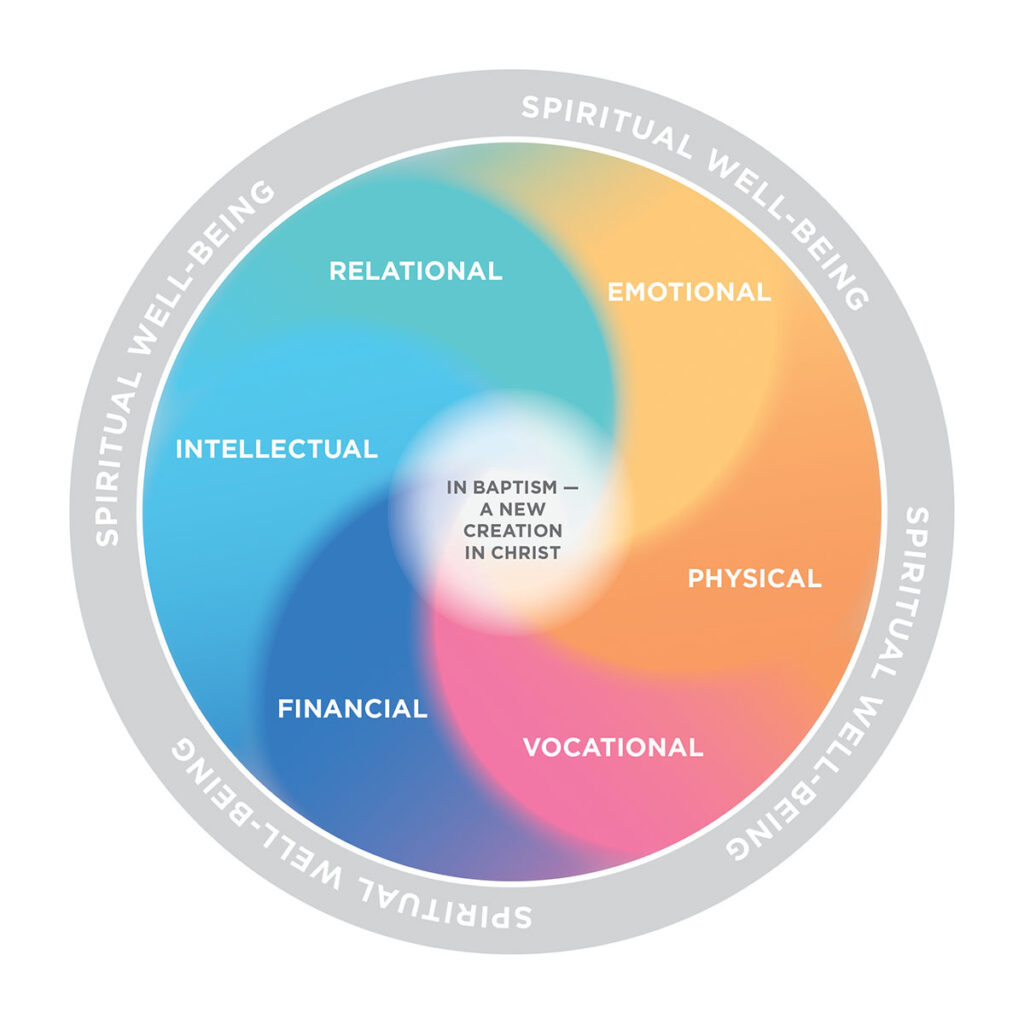Editor’s note: Monthly articles from LCMS Stewardship Ministry are hosted here on The Lutheran Witness site. Visit the “Ministry Features” page each month for additional stewardship content.
Stewardship is the free and joyous activity of the child of God, and God’s family the church, in managing all of life and life’s resources for God’s purposes.
In a recent feature on stewardship, we dissected the established working definition of “stewardship” within the LCMS. That examination was methodical and straightforward. This month, we shift to a more visual interpretation.
This new perspective was inspired by my attendance at the Ministerial Care Coalition, a gathering focused on the welfare of church workers that included district and Synod leaders. A pivotal discussion point was a concept visually encapsulating stewardship’s essence, commonly referred to as “The Wellness Wheel,” which could also be aptly named the “STEWARDSHIP Wellness Wheel.” Though many versions of this concept exist, we are currently exploring a specific rendition.

What distinguishes this tool in the context of assessing an individual’s stewardship wellness is its core principle: the steward is created in God’s image (Gen. 1:26–28). This designation implies that humans are meant to serve as the Creator’s priestly representatives, managing creation in accordance with Genesis 2:15.
However, this divine intention for stewardship was derailed when the original stewards failed to protect the Garden from the deceit of the serpent, ushering sin and death into the world — a development that manifests in our daily challenges, financial struggles and fractured relationships. This deviation underscores the necessity of the wellness wheel, introduced by sin’s disruption to creation.
But God, in His graciousness, provided a remedy through Jesus, the quintessential Steward, who flawlessly carried our burdens to the cross, thus restoring the failed stewardship of humanity through His resurrection. Baptism into Christ reestablishes us as stewards of the Gospel and the created order.
Thus, stewardship encompasses our entire being, guided by the Holy Spirit toward wellness in the Gospel. The “wellness wheel” illustrates this, with spiritual well-being encircling and influencing every facet of life. Living out our Baptism, as Luther advises, by daily renouncing the old self and embracing the new life in righteousness, represents the essence of true stewardship.
Central to this journey of stewardship wellness are confession and the power of Word and Sacrament, through which the Holy Spirit revitalizes the steward in the wake of failure, independent of personal effort.
Stewardship wellness includes several dimensions, each bounded by our baptismal identity and spiritual health, and propelled toward well-being by the Spirit:
- Intellectual: Engaging with Scripture, the Lutheran Confessions, and enriching literature sharpens our minds for the Gospel, preparing us to defend our hope against worldly misconceptions.
- Relational: Recognizing our inherent social nature, stewardship in relationships encourages reconciliation and unity, mirroring the peace intended by God.
- Emotional: Proper management of our emotions, through resources such as pastoral and counseling services, supports a balanced witness to our hope in Jesus.
- Physical: The stewardship of our bodies affects our Gospel mission. Maintaining physical health reflects our reverence for the body as the temple of the Holy Spirit.
- Vocational: Fulfilling our vocational duties — from family responsibilities to professional endeavors — demonstrates the steward’s wellness in action.
- Financial: Wise management of financial blessings for Gospel purposes reflects a steward’s heartfelt response to God’s generosity.
Navigating the stewardship wellness wheel is a dynamic, Spirit-led process, not a mere checklist. Through constant monitoring, confession and amendment, we embrace a path of increasing wellness, signifying faithful stewardship of all that life offers for God’s glory.
LCMS Stewardship ministry features may be reprinted with acknowledgment given to The Lutheran Church—Missouri Synod.



